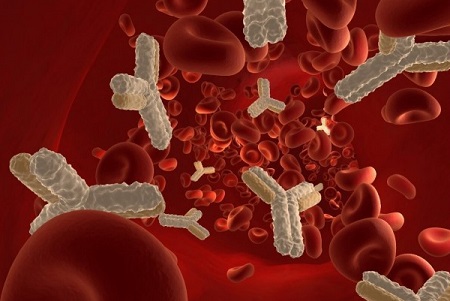Nikhil Prasad Fact checked by:Thailand Medical News Team Jul 08, 2024 1 year, 6 months, 3 weeks, 1 hour, 45 minutes ago
COVID-19 News: In the wake of the COVID-19 pandemic, millions of survivors are grappling with long-lasting symptoms, a condition commonly referred to as long COVID or post-COVID-19 syndrome. This
COVID-19 News report delves into a new systematic review that investigates the persistence of autoantibodies in COVID-19 survivors and their potential role in post-COVID symptoms.
 The Role of Autoantibodies In Long COVID
What Are Autoantibodies?
The Role of Autoantibodies In Long COVID
What Are Autoantibodies?
Autoantibodies are antibodies that mistakenly target and attack the body's own tissues, leading to autoimmune diseases. In the context of COVID-19, researchers are exploring whether these autoantibodies might be responsible for the prolonged symptoms experienced by many survivors.
Persistent Symptoms of Long COVID
Long COVID is a condition that affects individuals who have recovered from the acute phase of COVID-19 but continue to experience symptoms for weeks or months afterward. These symptoms can include fatigue, shortness of breath, cognitive dysfunction, and various other physical and mental health issues. The exact cause of long COVID remains unclear, but several hypotheses have been proposed, including the possibility that autoantibodies play a role.
The Study & Methodology
The study was conducted by a team of researchers from various institutions, including Johns Hopkins University School of Medicine-USA, University of Santo Tomas- Philippines, University of the Philippines Manila, University of Verona-Italy, Cincinnati Children’s Hospital Medical Center-USA and Universidad Rey Juan Carlos-Spain.
The comprehensive review analyzed data from multiple studies to understand the persistence of autoantibodies in COVID-19 survivors.
The researchers conducted a systematic review of studies available up to January 2024. They included studies that investigated the presence of autoantibodies in plasma or serum samples of individuals with post-COVID symptoms. The review followed rigorous selection criteria to ensure high methodological quality, assessing the studies using the Newcastle-Ottawa Scale.
Key Findings
The review identified five high-quality studies that met the inclusion criteria. These studies involved 647 COVID-19 survivors, including 410 individuals with post-COVID symptoms and 223 without post-COVID symptoms, along with 266 healthy controls.
The researchers found that the presence of autoantibodies was more common in individuals with post-COVID symptoms compared to those without.
One significant finding was that certain autoantibodies, such as antinuclear antibodies (ANA) and anti-SS-B/La, were more prevalent in COVID-19 survivors with lingering symptoms. These autoantibodies are known to be involved in autoimmune responses and may contribute to the persistent inflammation seen in long COVID patients.
The Role of Autoantibodies
While the
presence of autoantibodies in post-COVID patients suggests a potential link, the clinical significance remains uncertain. Some studies concluded that autoantibodies played a small but noteworthy role in post-COVID symptoms, while others found no significant association. This inconsistency highlights the need for further research to clarify the role of autoantibodies in long COVID.
Implications for Diagnosis and Treatment
Understanding the role of autoantibodies in post-COVID symptoms is crucial for developing targeted diagnostic and treatment approaches. If autoantibodies are indeed contributing to long COVID, therapies that reduce their levels could potentially alleviate symptoms and improve patient outcomes.
Future Research Directions
The review underscores the need for additional research to explore the mechanisms by which autoantibodies may contribute to post-COVID symptoms. Studies with larger sample sizes and longer follow-up periods are necessary to provide more definitive answers. Moreover, investigating the role of autoantibodies in different populations and across various COVID-19 variants will be essential for developing comprehensive treatment strategies.
Conclusion
This systematic review provides valuable insights into the potential role of autoantibodies in post-COVID symptoms. While there is evidence to suggest that these antibodies may contribute to the condition, the clinical relevance is still modest, and further research is needed.
The study findings were published in the peer-reviewed journal: Frontiers in Immunology.
https://www.frontiersin.org/journals/immunology/articles/10.3389/fimmu.2024.1428645/full
For the latest
COVID-19 News, keep on logging to Thailand Medical News.
Read Also:
https://www.thailandmedical.news/news/link-between-antinuclear-antibodies-and-covid-19-severity
https://www.thailandmedical.news/news/study-shows-insights-of-nuanced-interactions-between-autoantibodies-and-specific-covid-19-symptoms-with-anti-agtr1-antibodies-playing-a-key-role
https://www.thailandmedical.news/news/type-i-interferon-autoantibodies-in-covid-19-cause-immune-dysregulation-and-contribute-to-disease-severity
